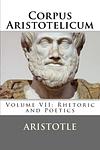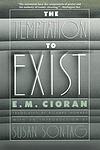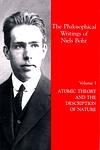The Greatest Romanian, Greek, Danish "Philosophy" Books of All Time
Click to learn how this list is calculated.
This list represents a comprehensive and trusted collection of the greatest books. Developed through a specialized algorithm, it brings together 305 'best of' book lists to form a definitive guide to the world's most acclaimed books. For those interested in how these books are chosen, additional details can be found on the rankings page.
Genres
Philosophy is a category of books that explores fundamental questions about existence, knowledge, ethics, and reality. It encompasses a wide range of topics, from the nature of consciousness and the meaning of life to the principles of logic and the foundations of morality. Philosophy books often challenge readers to think deeply and critically about the world around them, and to consider different perspectives and arguments in order to arrive at their own conclusions.
Countries
Date Range
Reading Statistics
Click the button below to see how many of these books you've read!
Download
If you're interested in downloading this list as a CSV file for use in a spreadsheet application, you can easily do so by clicking the button below. Please note that to ensure a manageable file size and faster download, the CSV will include details for only the first 500 books.
Download-
1. The Republic by Plato
"The Republic" is a philosophical text that explores the concepts of justice, order, and character within the context of a just city-state and a just individual. It presents the idea of a utopian society ruled by philosopher-kings, who are the most wise and just. The dialogue also delves into theories of education, the nature of reality, and the role of the philosopher in society. It is a fundamental work in Western philosophy and political theory.
The 143rd Greatest Book of All Time -
2. The Complete Works of Plato by Plato
This comprehensive collection compiles the philosophical works of an influential Classical Greek philosopher. The book includes his dialogues, letters, and philosophical musings, exploring topics such as justice, beauty, truth, mathematics, politics, love, and virtue. The philosopher's ideas, including the theory of forms, the allegory of the cave, and the philosopher king, have had a profound impact on Western thought and continue to be studied and debated in modern philosophical and academic circles.
The 360th Greatest Book of All Time -
3. The Nicomachean Ethics by Aristotle
This philosophical work focuses on the concept of ethics, specifically virtue ethics, and how it relates to a person's character and happiness. The author argues that happiness is the highest good and the end goal of life, and that it is achieved not through pleasure, but through virtuous actions. The book also explores the nature of practical reasoning, the different kinds of virtues, the importance of friendship, and the role of luck in human welfare.
The 499th Greatest Book of All Time -
4. Corpus Aristotelicum by Aristotle
The "Corpus Aristotelicum" is a collection of texts by an ancient Greek philosopher, providing an extensive exploration of numerous fields of knowledge, such as metaphysics, ethics, logic, politics, biology, and poetry. These works have been instrumental in shaping Western philosophy and have had a profound influence on a wide range of subjects, including science, theology, and politics. The collection is known for its systematic and logical approach, and for its groundbreaking ideas that continue to stimulate intellectual discourse.
The 771st Greatest Book of All Time -
5. Symposium by Plato
In "Symposium", a group of notable men including philosophers, playwrights, and politicians gather at a banquet and decide to each give a speech in praise of the god of love. Each speech presents a different perspective on love, ranging from the purely physical to the spiritual. The dialogue culminates with the speech of Socrates, who presents a philosophical view of love as a means of ascending to contemplation of the divine.
The 855th Greatest Book of All Time -
6. Apology by Plato
This philosophical text is a dialogue of Socrates' defense in 399 BC against the charges of 'corrupting the young, and by not believing in the gods in whom the city believes, but in other daimonia that are novel.' The dialogue is Socrates' defense at his trial and is his final public statement before his execution. In it, he discusses the moral and philosophical justification for his actions and beliefs, ultimately leading to his conviction and death.
The 954th Greatest Book of All Time -
7. Phaedo by Plato
"Phaedo" is a philosophical dialogue that takes place in ancient Greece, where the main character, a philosopher, is awaiting his execution. The story is a discussion on the nature of the afterlife, the immortality of the soul, and the theory of forms. The philosopher argues that the soul is immortal and that we should not fear death. He also discusses his theory of forms, stating that the world we perceive is merely a shadow of the true world of forms. The dialogue ends with the philosopher calmly accepting his fate, illustrating his belief in the immortality of the soul.
The 991st Greatest Book of All Time -
8. Poetics by Aristotle
This book is a seminal work of literary criticism that has profoundly influenced western thought. The book discusses the nature of poetry, tragedy, and comedy, as well as the components that make up a good story such as plot, character, thought, diction, melody, and spectacle. The author also introduces the concept of catharsis, the purging of emotions through the experience of art, and discusses the role of the tragic hero. The book is a must-read for anyone interested in literature, drama, or philosophy.
The 1370th Greatest Book of All Time -
9. Fear and Trembling by Soren Kierkegaard
"Fear and Trembling" is a philosophical work that explores the concept of faith, drawing upon the biblical story of Abraham and his willingness to sacrifice his son Isaac. The author uses this story to delve into the paradox of faith, arguing that true faith requires a willingness to make personal sacrifices that may seem absurd or irrational to others. The book challenges conventional notions of morality and ethics, suggesting that faith may sometimes require actions that go beyond the bounds of societal norms.
The 1377th Greatest Book of All Time -
10. Fragments by Heraclitus
"Fragments" is a collection of philosophical musings and theories from an ancient Greek philosopher. The book explores a wide array of topics, including the nature of the universe, the human mind, and the relationship between the two. Often cryptic and paradoxical, the author's thoughts challenge traditional perceptions of reality and encourages readers to think deeply about their own existence and understanding of the world.
The 1502nd Greatest Book of All Time -
11. Crito by Plato
"Crito" is a philosophical dialogue where the main character, a renowned philosopher, is in prison awaiting execution and is visited by his friend, Crito, who urges him to escape. The philosopher argues that since the laws of Athens have given him life, education, and many other benefits, it would be unjust for him to break those laws by escaping. The dialogue explores themes of justice, law, obligation, and the social contract.
The 1548th Greatest Book of All Time -
12. Either Or by Soren Kierkegaard
"Either Or" is a philosophical work that explores the concept of existentialism through the lens of two contrasting life views: the aesthetic and the ethical. The aesthetic life is characterized by immediate pleasure and enjoyment, while the ethical life is defined by moral duty and responsibility. The book presents these two perspectives through the fictional letters of two characters, ultimately arguing for the superiority of the ethical life. However, it also suggests that a truly fulfilled life must find a balance between the two.
The 1650th Greatest Book of All Time -
13. On the Heights of Despair by Emil Cioran
"On the Heights of Despair" is a philosophical exploration of the human condition, particularly focusing on themes such as existentialism, despair, and nihilism. The author delves into the idea of life as suffering and the inevitability of death, offering a bleak yet thought-provoking perspective on existence. The work is a profound contemplation of life's absurdity, loneliness, and the struggle to find meaning, presenting an introspective journey into the depths of despair and the heights of existential thought.
The 1711th Greatest Book of All Time -
14. Euthyphro by Plato
"Euthyphro" is a philosophical dialogue that takes place in the weeks leading up to the trial of Socrates, where Socrates and Euthyphro engage in a conversation about the nature of piety. The dialogue begins with Socrates questioning Euthyphro about his decision to prosecute his own father for the murder of a slave. This leads to a discussion about what is considered holy and the nature of the gods. Despite their lengthy conversation, the two philosophers never arrive at a definitive answer, leaving the question of what constitutes true piety unresolved.
The 1973rd Greatest Book of All Time -
15. Enneads by Plotinus
"Enneads" is a collection of 54 philosophical treatises by Plotinus, a prominent philosopher of the ancient world. The work is a cornerstone of Neoplatonism, a school of Hellenistic philosophy that sought to reconcile Greek philosophy with religious mysticism. The book covers a wide range of topics, including the nature of reality, the self, the universe, and the divine. The author argues for the existence of a transcendent One from which all existence emanates, and that the goal of human life is to strive for unity with this divine principle.
The 2162nd Greatest Book of All Time -
16. The Sickness Unto Death by Soren Kierkegaard
This philosophical work explores the concept of despair, which the author sees as a spiritual condition linked to the Christian concept of sin. The author delves into the human struggle to reconcile the self with the ideal self, a process he argues is only possible through a relationship with God. The book also discusses existential dread, self-awareness, and the nature of the human soul, offering a complex and thought-provoking examination of the human condition.
The 2284th Greatest Book of All Time -
17. Phaedrus by Plato
Phaedrus is a Socratic dialogue that discusses topics such as love, the nature of the soul, and the art of rhetoric. The narrative begins with a myth about the chariot of the soul, then moves on to a discussion about the nature of love, particularly focusing on the concept of divine madness. The dialogue then transitions into a discussion about rhetoric and writing, debating the merits and pitfalls of both. The dialogue concludes with a critique of the art of rhetoric, arguing that true rhetoric must be based on truth and knowledge rather than manipulation and deceit.
The 2769th Greatest Book of All Time -
18. Metaphysics by Aristotle
"Metaphysics" is a philosophical work that delves into the fundamental nature of reality, including the relationship between matter and substance, potentiality and actuality, form and matter, existence and essence, and the underlying principles of being. It also explores the concept of 'first philosophy' or 'wisdom', and the existence of God as an unmoved mover. The book is a profound exploration of ontology, causality, and the abstract concepts of being and knowing.
The 2812th Greatest Book of All Time -
19. The Temptation To Exist by Emil Cioran
"The Temptation to Exist" is a philosophical work that explores the human condition and the inherent struggles of existence. The author delves into themes of nihilism, despair, and the search for meaning in a world filled with suffering. Through a series of thought-provoking essays, Cioran challenges traditional beliefs, questions the nature of reality, and reflects on the complexities of human existence, ultimately offering a bleak yet profound perspective on the human experience.
The 3285th Greatest Book of All Time -
20. Almagest by Ptolemy
"Almagest" is a seminal work on astronomy and mathematics, written in the 2nd century. The book presents a comprehensive system of the world, including a detailed account of the fixed stars and the motions of the planets. It also includes a mathematical toolkit that was essential for understanding the heavens in its time, such as a catalogue of stars, the lengths of the tropical year and the lunar month, and the theory of the Sun, Moon, and planets. The book's geocentric model, where the Earth is at the center of the universe, was widely accepted until the Copernican Revolution.
The 7988th Greatest Book of All Time -
21. Atomic Theory and the Description of Nature by Niels Bohr
This book is a collection of four lectures given by the author, a renowned physicist, on the philosophical implications of quantum mechanics. He discusses the fundamental principles of quantum theory, its philosophical implications, and its impact on the understanding of nature, arguing that the atomic theory has fundamentally changed our perception of reality. The book also delves into the author's belief that a complementary perspective, which involves both a particle view and a wave view, is necessary to fully understand quantum phenomena.
The 7988th Greatest Book of All Time -
22. Outlines of Pyrrhonism by Sextus Empiricus
"Outlines of Pyrrhonism" is a philosophical text that delves into the teachings of Pyrrho, a Greek philosopher known for his skepticism. The book explores the concept of skepticism as a pathway to "ataraxia" (tranquility), arguing that suspending judgment leads to a state of mental peace. It presents Pyrrhonism as a philosophy that encourages the suspension of judgment about the truth of beliefs in order to achieve this tranquility. The text also provides a detailed comparison of Pyrrhonism with other philosophical schools of thought, such as Stoicism and Epicureanism.
The 8259th Greatest Book of All Time
Reading Statistics
Click the button below to see how many of these books you've read!
Download
If you're interested in downloading this list as a CSV file for use in a spreadsheet application, you can easily do so by clicking the button below. Please note that to ensure a manageable file size and faster download, the CSV will include details for only the first 500 books.
Download




















